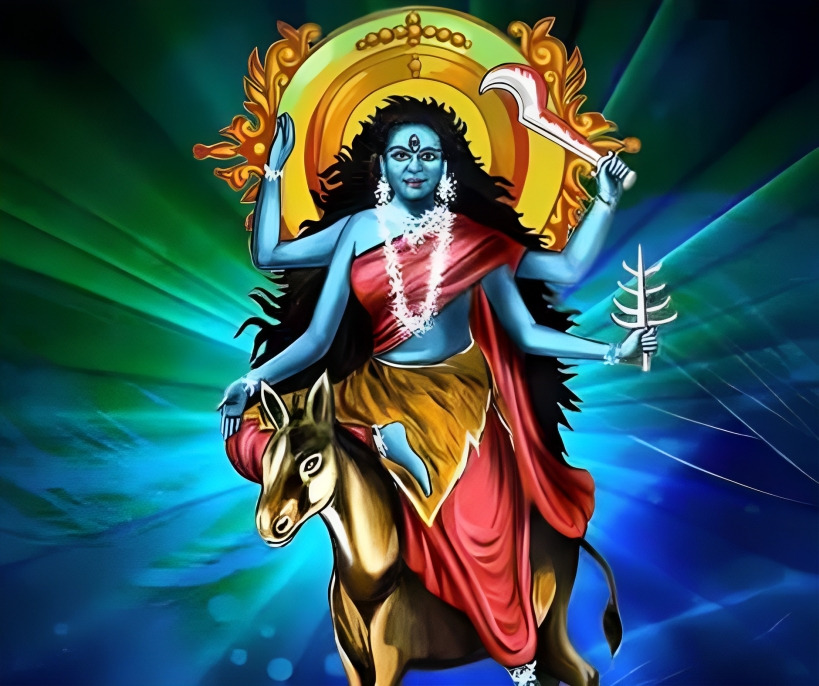As the vibrant festival of Navaratri reaches its pinnacle, we find ourselves immersed in the seventh day of this auspicious occasion. This day holds immense significance in Hindu mythology and is celebrated with great fervour across India. Join us as we delve into the energetic and unique essence of Navaratri Day 7, exploring its customs, rituals, and spiritual significance.
The Significance of Navaratri Day 7:
- Navaratri is a vibrant and significant nine-day festival that is celebrated across India, paying homage to the divine feminine energy known as Devi. Each day of the festival is dedicated to a specific form of Devi, with devotees observing various rituals and prayers to honor her.
- On the seventh day of Navaratri, the focus shifts to the fierce and powerful form of Devi, known as Kalaratri. This form of Devi is believed to be the destroyer of darkness and negative energies, and her worship is said to bring immense blessings and protection to her devotees.
- During this day, people offer special prayers and offerings to Kalaratri, seeking her divine grace and blessings. The festival culminates on the tenth day with Vijayadashami, which marks the victory of good over evil.
Kalaratri, the Dark Night:
- Devi’s seventh manifestation, Kalaratri, is worshipped as the destroyer of darkness and ignorance. She appears as a fierce goddess with a dark complexion, wild hair, and a necklace of human skulls. Her name, Kalaratri, means “the dark night,” signifying the elimination of negativity and fear from our lives.
The Rituals and Customs:
- On Navaratri Day 7, devotees wake up before sunrise and engage in prayers and rituals to honor Kalaratri. The day begins with a special bath, followed by the adornment of Devi’s idol with flowers and vermilion. Devotees then offer prayers, chant mantras, and recite hymns dedicated to Kalaratri.
The Colorful Garba Dance:
- One of the highlights of Navaratri is the vibrant and energetic Garba dance. On the seventh day, the Garba reaches its zenith, with participants donning colorful traditional attire and dancing in circular formations, symbolizing the cyclical nature of life. The dance is accompanied by rhythmic music and the clapping of hands, creating an electrifying atmosphere.
The Spiritual Significance:
- The seventh day of Navaratri is of great spiritual significance as it is dedicated to the fierce aspect of Devi known as Kalaratri. The worship of Kalaratri is believed to help devotees confront their inner demons and overcome the darkness within, thereby instilling courage, determination, and fearlessness in them.
- Beyond the festivities, Navaratri Day 7 serves as a reminder of the eternal battle between good and evil, teaching us that darkness can only be dispelled by the light of knowledge, wisdom, and self-realization. By embracing Kalaratri’s energy, we embark on a transformative journey towards self-discovery and spiritual enlightenment.
Conclusion:
As we celebrate Navaratri Day 7, let us immerse ourselves in the energetic and unique essence of this auspicious occasion. Through the worship of Kalaratri, we awaken the dormant strength within us, conquering our fears and embracing the light of knowledge. May this day inspire us to embrace the divine feminine energy and embark on a path of self-realization and spiritual growth.




